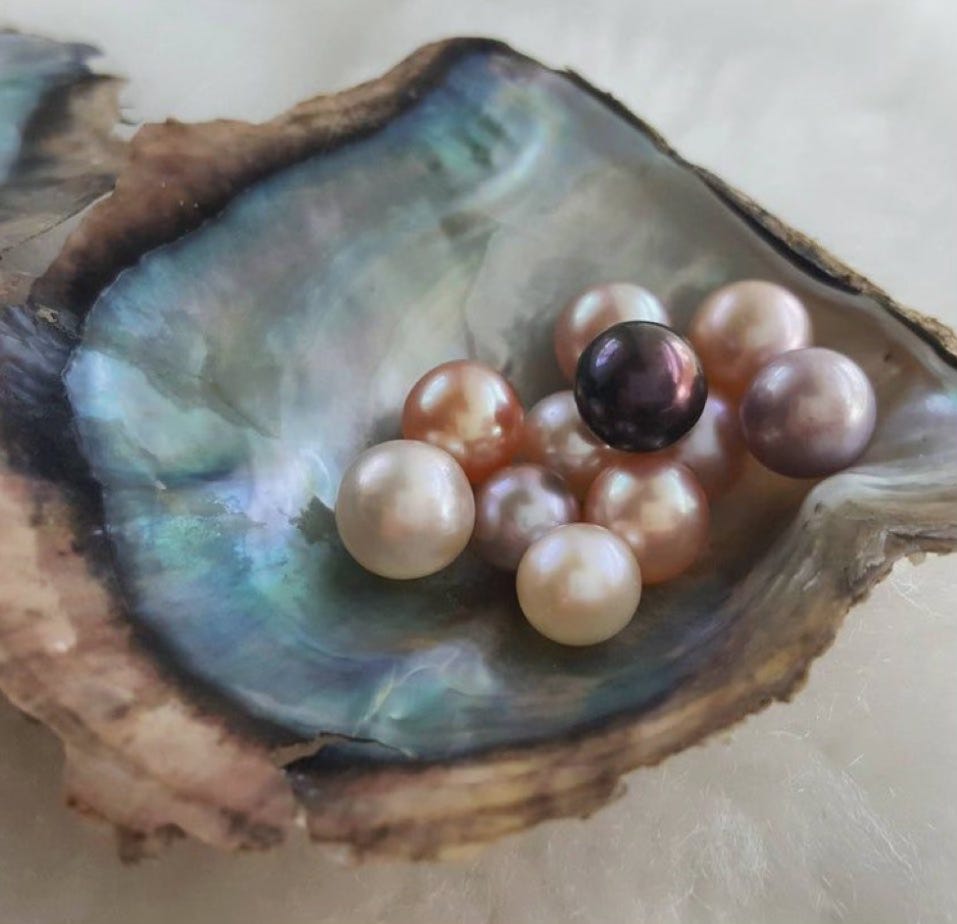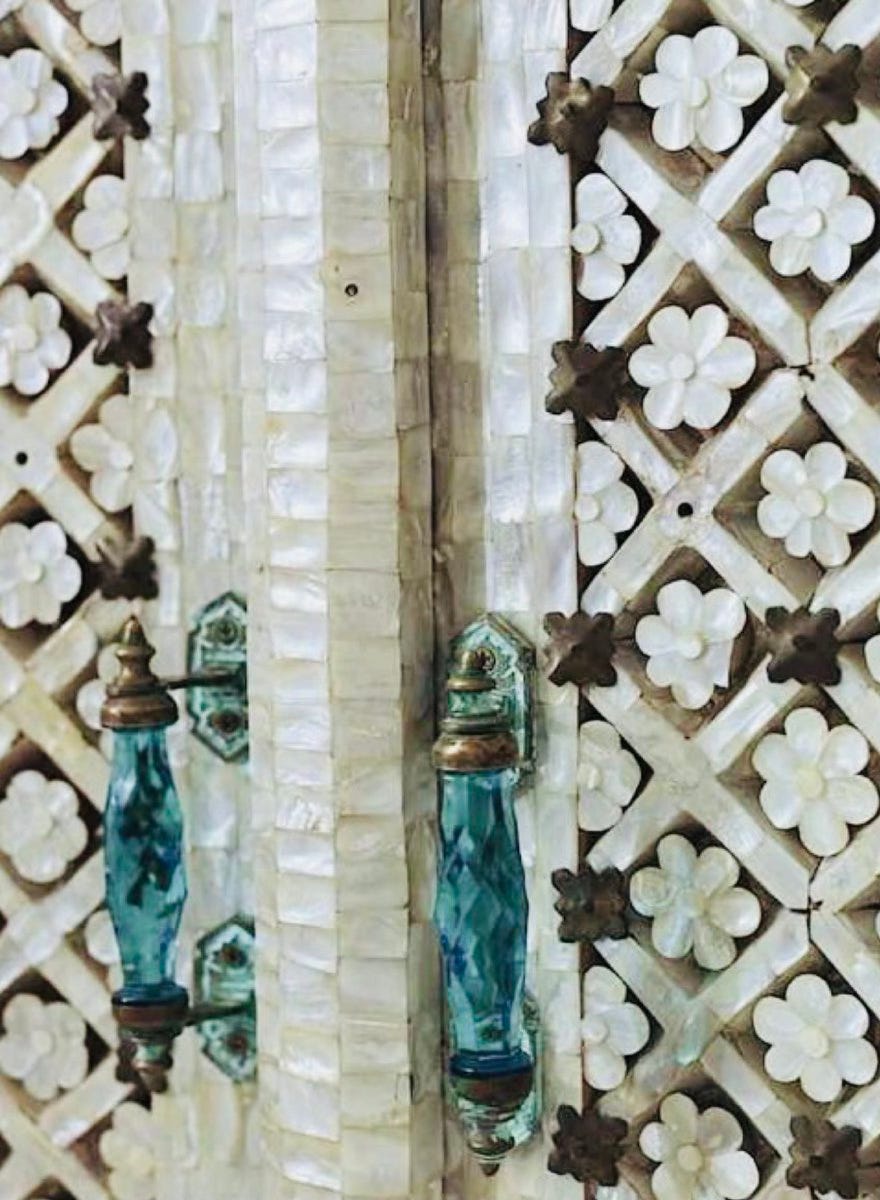Can beauty save the world?
Two essential answers, at an essentially bewildering moment
Today, at this strange and unusually transitional pinpoint in time, I’d like to share with you again two of my favorite passages from C.S. Lewis, whose quotes are taped all over my writing desk.
The first one has to do with beauty – on why it matters so much. It seems like a frippery. In a world that contains tragedy, strife, and malevolence, how could the subject of beauty be worth our attention, how could the pursuit of it be worth our efforts?
But C.S. Lewis had brushed with horror in the terrible trenches of World War I; he knew it intimately. And on the eve of WWII, in a famous lecture at Oxford University, he asked this question:
“Does beauty matter when bombs start falling?”
Here is his beautiful (pun intended) answer.
“Human life has always been lived on the edge of a precipice. Human culture has always had to exist under the shadow of something infinitely more important than itself. If men had postponed the search for knowledge and beauty until they were secure, the search would have never begun. We are mistaken when we compare war with “normal life.” Life has never been normal.”
The second passage is (as I noted in my book BITTERSWEET) one of the most sublime writings in all of English literature.
Here, Lewis is talking about “the inconsolable longing for we know not what.” He’d felt this longing his whole life, and it came to him during moments of almost unbearable beauty: “[t]hat unnameable something, desire for which pierces us like a rapier at the smell of bonfire, the sound of wild ducks flying overhead, the title of The Well at the World’s End, the opening lines of ‘Kubla Khan’, the morning cobwebs in late summer, or the noise of falling waves.”
The longing first came when he was very young. His brother brought him a toy garden filled with moss and flowers, and he was overcome by a joyous ache he couldn’t understand, though he would try for the rest of his life to put it into words, to find its source, to seek the company of kindred spirits who’d known the same wondrous “stabs of joy.”
Lewis became a committed Christian in his 30s, eventually concluding that we have hunger because we need to eat, we have thirst because we need to drink; so if we have an “inconsolable longing” that can’t be satisfied in this world, it must be because we belong in another, godly one.
And now here is the passage that *I* find impossibly beautiful – even though I happen to see things slightly differently than Lewis did – as I’ll explain in a moment:
“Our commonest expedient,” wrote Lewis, “is to call [the longing] beauty and behave as if that had settled the matter.…[But [t]he books or the music in which we thought the beauty was located will betray us if we trust to them; it was not in them, it only came through them, and what came through them was longing. These things—the beauty, the memory of our own past—are good images of what we really desire; but if they are mistaken for the thing itself they turn into dumb idols, breaking the hearts of their worshippers. For they are not the thing itself; they are only the scent of a flower we have not found, the echo of a tune we have not heard, news from a country we have never yet visited.”
For Lewis, the “country we have never yet visited” is the explicitly Christian Kingdom of Heaven.
I happen to identify this “country” a little differently; and out there in the world of strife, much is made of such differences. But to me, this is a “distinction without a difference.” I believe that the longing itself extinguishes distinctions among believers of different religions, and among believers, atheists, and agnostics. As I see it, the longing comes through Yahweh or Allah, Christ or Krishna, no more and no less than it comes through the books and the music; they are equally the divine, or none of them are the divine, and the distinction makes no difference; they are all “It”. When you went to your favorite concert and heard your favorite musician singing the body electric, that was It; when you met your love and gazed at each other with shining eyes, that was It; when you kissed your five-year old good night and she turned to you solemnly and said ‘thank you for loving me so much,’ that was It: all of them facets of the same jewel.
And yes, at eleven p.m. the concert will end, and you’ll have to find your car in a crowded parking lot; and your daughter may grow up in a world of trouble; and your relationship won’t be perfect because no relationship is.
Because, as Lewis suggests: life has never been perfect, the precipice has always been near. Yet these moments of approaching the sublime mean more than anything else that might ever happen to us. And maybe the precipice is the reason WHY they mean so much. Maybe the sublime is what points us away from the precipice; maybe it’s what guides us in the direction of “the perfect and beautiful world”, the one we feel so improvably sure is out there somewhere.

So today, I want just to ask you: what do you find impossibly beautiful?
(And if you’d like to share today’s Kindred Letter, you can do that here.)
*
P.S. Some of the above was adapted from my book, BITTERSWEET. If you’d like to read it, or to take the accompanying Bittersweet audio course, you can click through these links.





I moved to Portugal from the US a few months ago and today found myself stranded in an unfamiliar area in the pouring rain. I was quite irritated and "dense." I was frustrated at my very elementary language skills, my wet feet and worried about the election back home. I ducked into a coffe shop, ordered a coffee and found some grounding. Once the rain let up and I allowed some spaciousness, I saw a glorious and perfect rainbow over the castle in my small town. It allowed me to see the denseness and the beauty at the same time. It was a good day.
Such an important topic! I love this article and the beauty within it.
For me, these days, I see beauty in nature ( sacred trees and all creatures of the earth) . This is where I go to get nourished and rebalanced. And I see beauty in human kindness, in resilience, in the eternal hope that justice and kindness will prevail, in expressions of love toward each other, in the courage to go deep inside ourselves to see what's there, both darkness and light, so we better can understand ourselves and each other. I see beauty in the darkness, in the dark night of the soul... That helps us to better appreciate the light and joy. I see beauty in empathy, the gift of being able to feel another's pain. I see beauty in sadness and tears and our ability to feel these things so deeply, and to offer comfort to each other. And laughter. Such a joy to feel and witness deep laughter, including sometimes laughing at ourselves. And there is such beauty in so many forms of human expression... Art, the written word, music, things we cannot define but that can move us to tears.
Thank you for this reminder today, Susan, at a time when it can be easy to get lost in all the division, negativity, and conflict. We are so much more than that.